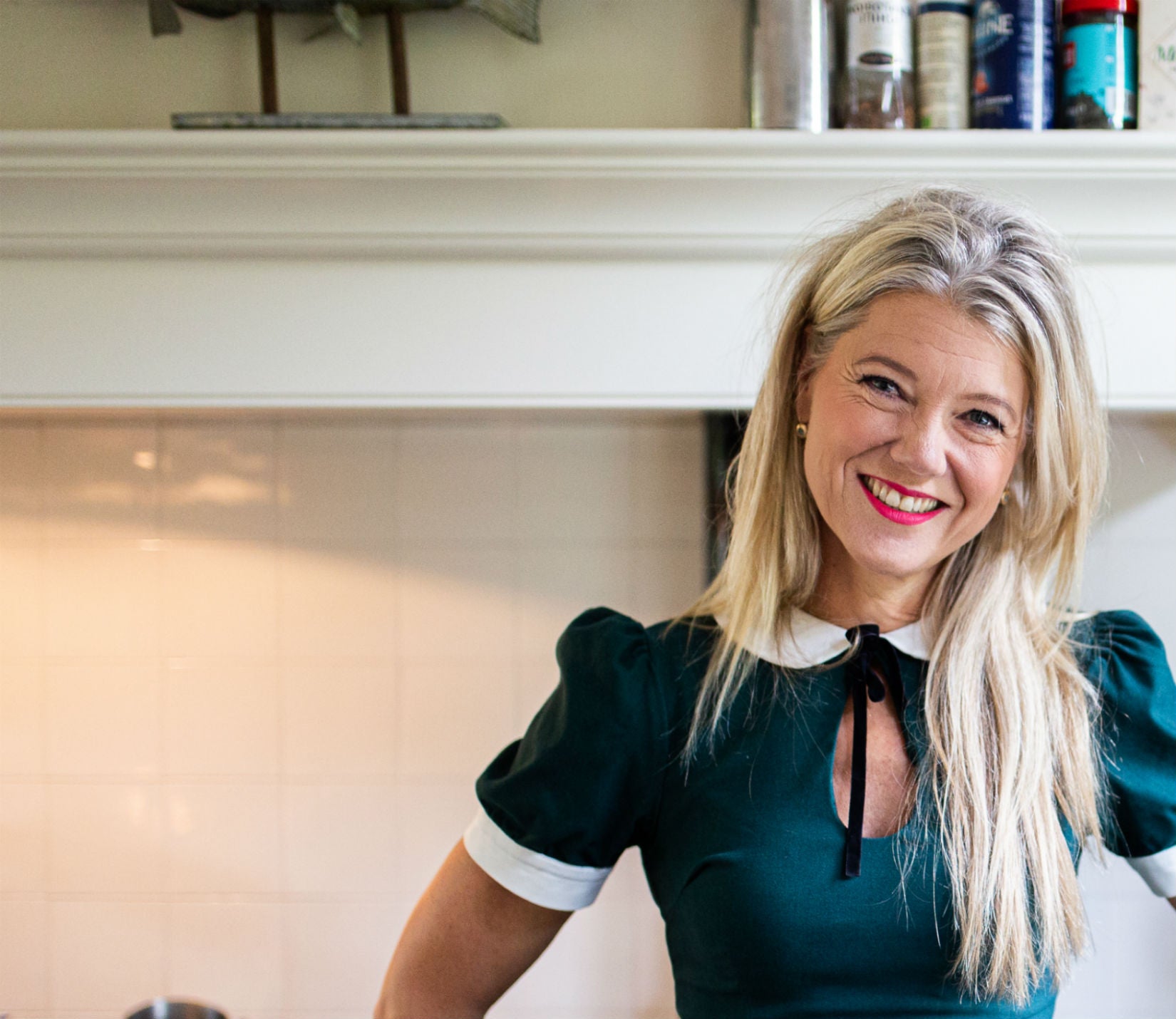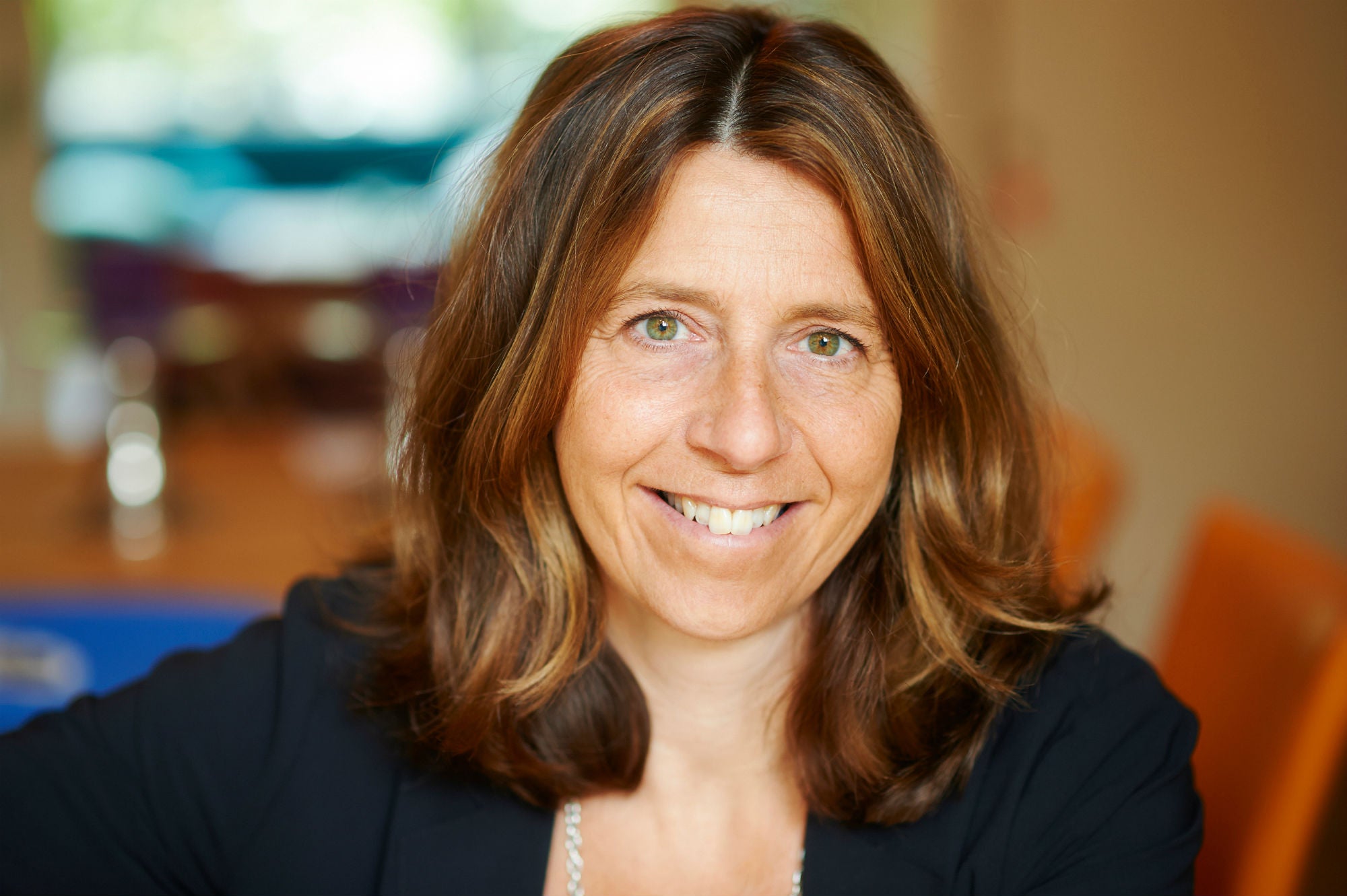VU Alumnus Sandra Ysbrandy (49) had worked her way up the ladder at Rabobank, winning a good salary for herself, a company car and job security. However, she still wasn’t happy, so she decided to set a radical new course for her career. ‘People often don’t dare to change until they’re forced to.’
The rain taps softly against the windows, but Sandra stands in the cheerful, warm kitchen of her country home. On the table is a plate of freshly baked oatmeal cookies. “Try one!” she says, beaming.
You studied history. So how did you end up at Rabobank?
“While I was studying for my Bachelor’s degree, people kept telling me that if I didn’t want to teach or do research, then I probably wouldn’t find a job. But an internship at a communications consulting bureau led me to Rabobank headquarters, where I was offered a position as an internal communications consultant. I seized the opportunity without giving it too much thought, because there weren’t many jobs available at the time, and I was just happy to have found one.”
"I reached my lowest point during my last project at the bank in 2008; supervising the annual report for the Rabobank Pension Fund."
What were you responsible for at the bank?
“As communications consultant, I supervised the mergers of local bank branches. Those branches were deeply rooted in their local communities; some of the staff even knew their customers’ account numbers by heart. And then they had to merge with another bank. That was a big challenge. I was interested in devising interventions that would unite the different cultures of these banks. To further develop professionally in that area, I enrolled in the two-year Master’s programme in Culture, Organisation and Management at the VU, which I did on top of my day job.”
Why did you decide to move in such a radically different direction?
“As a junior communications consultant, I was still able to apply my creativity to practical projects, but as I rose through the ranks, the projects became larger, more abstract and more dull. I reached my lowest point during my last project at the bank in 2008; supervising the annual report for the Rabobank Pension Fund.”
"I was trapped in the gilded cage of a good salary, mortgage, pension, company car."
“I began to feel alienated from my true self. I kept it up for as long as I could, but finally reached a point where I could no longer continue that way. I’m really creative, practical, and always full of ideas. All my life, I’ve had a passion for cooking, but I saw it as a hobby, not something I could do to earn a living. Coaching sessions helped me to flesh out a vision of my ideal future. I wanted to make a living with my hobby – cooking. So I quit my job and enrolled in a two-year chef’s training programme.”
As someone with real-life experience, do you have any tips for others who would like to try something new?
“You’re never too old to become who you are, so go for it! I guarantee it will make you happier. Of course it’s scary at first. I had to get out of a pattern that I’d been living in for years. I was trapped in the gilded cage of a good salary, mortgage, pension, company car. In order to break that pattern, sometimes you have to reset yourself by doing something completely outside of the box. Try painting or singing, take a walking tour, volunteer at a community garden or a nursing home for a day. Do things that you wouldn’t normally do, but that will bring you into contact with different people and different ideas.”

How did you end up in television?
“During my chef’s training, I was asked to do a screen test as the in-house cook for the television programme Het familiedinerby Bert van Leeuwen. I cooked meals for people who wanted to get together to resolve a conflict. After Rudolph van Veen left Live & Cooking(ed.: later Life4you), I was asked to take his place. Live television has a completely different dynamic. You can’t redo anything, but you get an enormous buzz out of it. The programme was cancelled after 15 years, and I now have a daily cooking show on Maxand cook live every month in Tijd voor Max.
But now you’re back in the business world again.
“Yes, my career has come full circle! I have a passion for healthy living, and I’m convinced that you can have a positive effect on your health by choosing the right nutrition and lifestyle. I want to help people make healthy choices and inspire them to take up cooking again. Companies want healthy, energetic employees. So I give workshops and training courses on how good nutrition improves employees’ vitality and productivity. Participants can taste dishes that will help them deal with stress, prevent an after-lunch dip, or that are good for your brain.”
"My boys complain about their dinner sometimes. They’d rather eat white pasta, pizza and hamburgers."
Have your anthropology studies come in handy for that?
"Absolutely. The perception that healthy food isn’t tasty and takes too long to cook is so deeply rooted in our attitudes. When you bring up people’s lifestyles, they start to get defensive. If you can get to know people and find out their beliefs about diet and lifestyle, you can help them to break through those beliefs. People are also bombarded with so much information about nutrition these days that they have trouble seeing the forest for the trees. To me, it’s actually very simple: we have to get back to an unprocessed, complete and varied diet.”
You have three sons. Do they appreciate your home cooking?
Sandra bursts out laughing: “The boys (18, 15 and 11) complain about their dinner sometimes. They’d rather eat white pasta, pizza and hamburgers. But I cook vegetarian a lot, with at least three types of vegetables. I’ll cook something with high-quality meat or fish once or twice a week. There’s this misunderstanding that vegetarian food is boring, bland or complicated. As a chef and vitality consultant, I consider it my personal mission to inspire people to get back into the kitchen and choose a healthy diet.”









